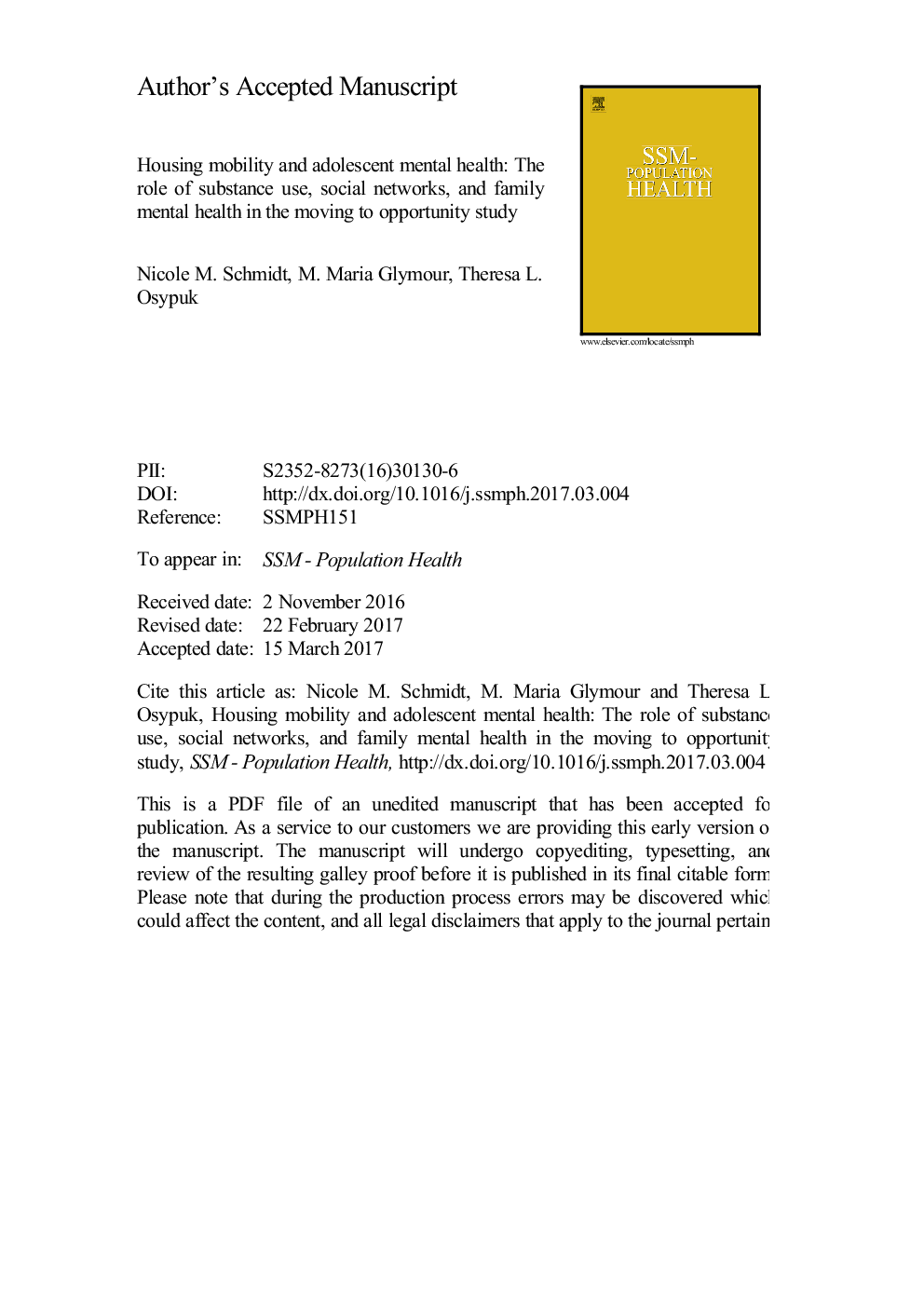ترجمه فارسی عنوان مقاله
تحرک مسکن و سلامت روان نوجوانان: نقش استفاده از مواد، شبکه های اجتماعی و سلامت روانی خانواده در مطالعه در حال گذار به فرصت
عنوان انگلیسی
Housing mobility and adolescent mental health: The role of substance use, social networks, and family mental health in the moving to opportunity study
| کد مقاله | سال انتشار | تعداد صفحات مقاله انگلیسی |
|---|---|---|
| 115882 | 2017 | 27 صفحه PDF |
منبع

Publisher : Elsevier - Science Direct (الزویر - ساینس دایرکت)
Journal : SSM - Population Health, Volume 3, December 2017, Pages 318-325

